Israel bluntly shuts down allied calls for ceasefire as ‘hell breaks loose’ in Middle East
Western allies have stepped in as chaos continues to rain down on civilians in the Middle East, with analysts fearing the worst is yet to come.
World
Don't miss out on the headlines from World. Followed categories will be added to My News.
Western allies including the US, UK, EU and Australia have demanded a temporary ceasefire in Lebanon amid escalating tensions between Israel and Hezbollah.
The coalition of 12 nations proposed a 21-day halt in the fighting to “allow space for diplomacy” while also working towards a ceasefire in Gaza.
There are now very real fears the escalating conflict could soon spark a wider war, with much of the Middle East sitting on a knife’s edge.
In a collective statement released on Thursday (AEST), the group condemned the ongoing violence as “intolerable”, warning that it posed an “unacceptable risk of broader regional escalation”.
Both sides have been warned that they stand to gain nothing if conflict continues.
A joint declaration endorsed by the US, Australia, Canada, the European Union, France, Germany, Italy, Japan, Saudi Arabia, the United Arab Emirates, the UK, and Qatar, was signed during a UN General Assembly in New York.
In a joint message, US President Joe Biden and French President Emmanuel Macron stressed the need for a resolution that would “ensure safety and security” that enables civilians to return home.
“We have worked together in recent days to issue a unified call for a temporary ceasefire, providing diplomacy a chance to succeed and preventing further escalations across the border,” they added.
At a brief media appearance, President Biden was optimistic about the ceasefire proposal, saying there was “significant support” for the initiative to shut the missile silos on either side of the border.
But Israel continues to press on, continuing its devastating assault on Lebanon in its proclaimed mission to eradicate Hezbollah.
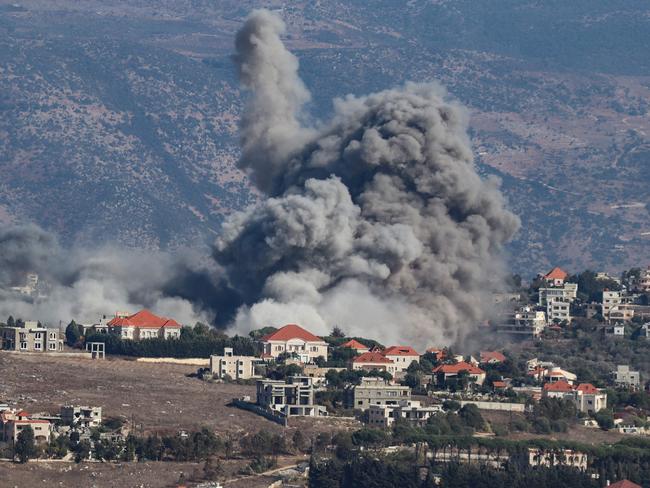
Israeli foreign minister shuts down ceasefire talk
Israel Katz, Israel’s foreign minister, hit back at the pleas on Thursday, declaring “there will be no ceasefire in the north”.
Israel “will continue to fight against the terrorist organisation Hezbollah with all our might until victory and the safe return of the residents of the north to their homes,” Katz adds said in a statement on X.
Meanwhile, UN Secretary-General António Guterres warned that “hell is breaking loose” across the region.
Lebanese Prime Minister Najib Mikati accused Israel of flagrantly violating Lebanon’s sovereignty and committing human rights abuses. He expressed hope that a “serious solution” could emerge from the UN session, which would pressure Israel into an immediate ceasefire on all fronts.
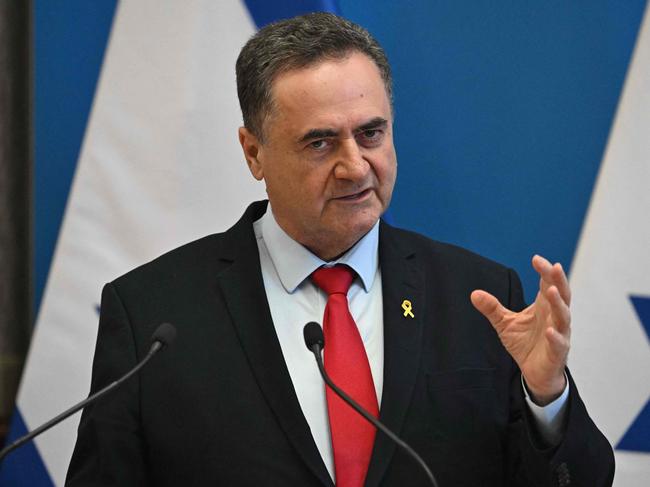
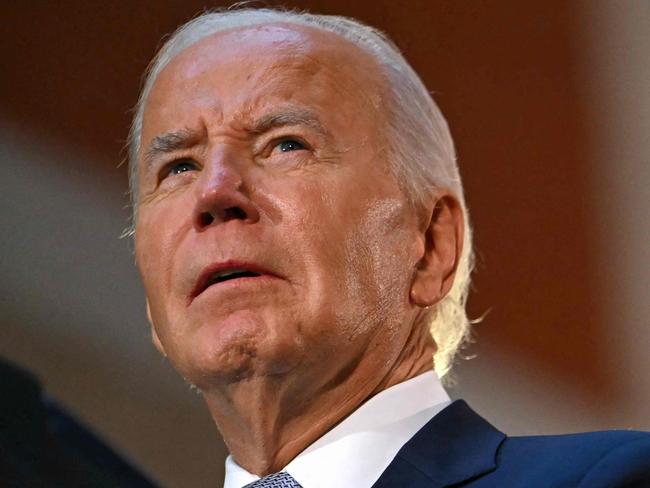
Israel prepares for ‘possible’ ground assault
Israel is now preparing for a “possible” ground assault into Lebanon after Wednesday’s ballistic missile attack on Tel Aviv.
The two countries have been at loggerheads since the Hamas attack on Israel on October 7, with Lebanon’s Hezbollah group a supporter of Hamas along with Iran.
In response to the missile attack on Tel Aviv, which was intercepted, Israel’s military chief Herzi Halevi told soldiers a wave of air strikes was being laid out in southern Lebanon “preparing the ground for your possible entry”.
At least 51 people were killed and more than 220 were injured in Israeli strikes on Lebanon on Wednesday, according to Lebanon’s health minister.
Israel’s army says the attacks targeted 60 sites used by Hezbollah’s intelligence division, including headquarters and other infrastructure used in the gathering of intelligence.
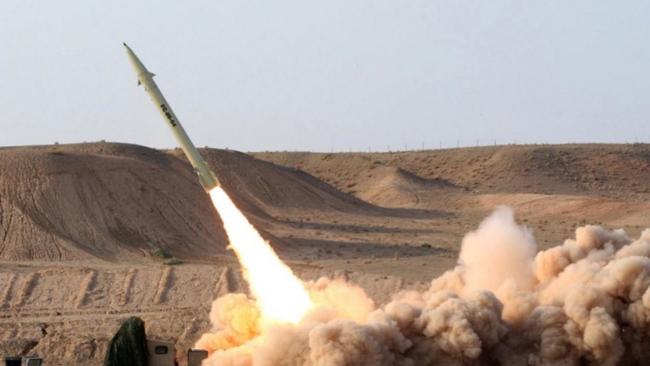
The military said it struck the launcher, which fired the missile in the Nafakhiyeh area of south Lebanon.
Polish military publication Visegrád 24 reported: “The 9 metre long rocket carries a warhead with up to 500kg of high explosives.”
The suspected Fateh-110 missile used in the failed strike is designed to inflict “mass casualties”, it was reported.
Locals reported hearing sirens sound in the vicinity of Mount Meron in the Western Galilee regions of the country.
Israel army chief tells troops to be ready for possible Lebanon entry
Israel’s army chief told troops on Wednesday to be prepared for possible entry into Lebanon as Israeli fighter jets bombarded Hezbollah targets across the border.
“You can hear the planes here; we are attacking all day, both to prepare the ground for the possibility of your entry, but also to continue striking Hezbollah,” Lieutenant General Herzi Halevi told a tank brigade, according to a statement issued by the military.
“We are not stopping. We will keep attacking and harming them everywhere,” Halevi said.
“To do this, we are preparing for the course of the manoeuvre, and the sense is that your military boots, your manoeuvre boots, will enter enemy territory.
“Your entry there with force... will show (Hezbollah) what it is like to meet a professional combat force.
“You are coming in much stronger than them, much more experienced than them; go in, destroy the enemy there, and go destroy the infrastructure.
“These are the things that will allow us to safely repatriate the residents of the north later.”
The United States said it did not think Israel, its close ally, would launch a ground operation in Lebanon any time soon, however.
“It doesn’t look like something is imminent,” Deputy Pentagon Press Secretary Sabrina Singh told journalists, referring to a possible Israeli incursion.
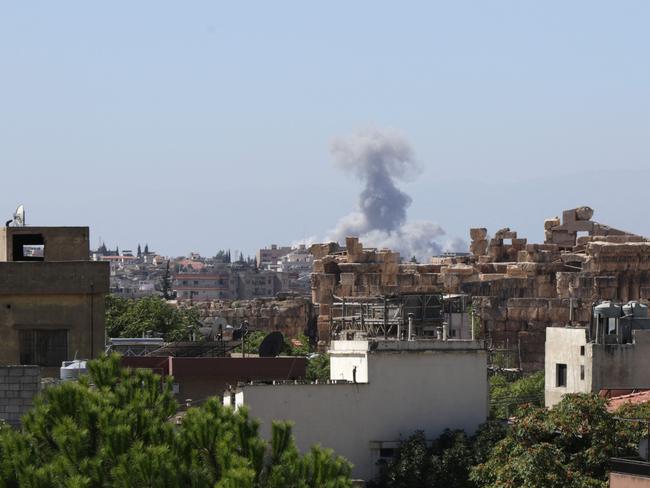
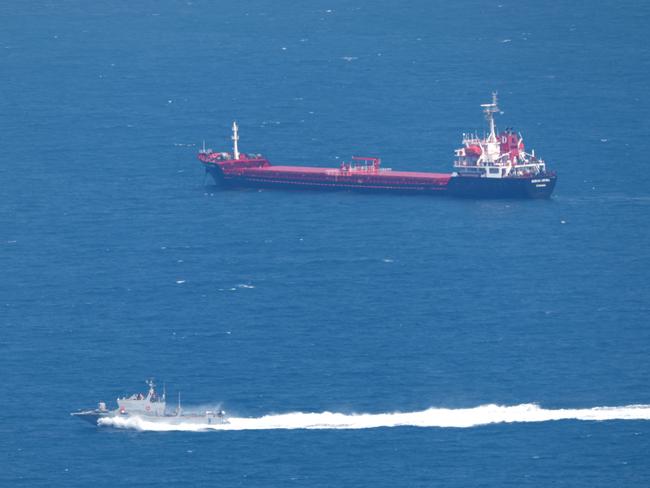
More than 90,000 people have been displaced in Lebanon since Monday, the UN said.
The White House says it’s “deeply concerned” after Hezbollah launched a missile towards towards Tel Aviv in Israel.
“It’s certainly deeply concerning, obviously to the Israelis, of course, but also to us,” the White House’s national security council spokesman, John Kirby, said in an interview with CNN.
“There is still time and space for a diplomatic solution here to de-escalate the tensions and to prevent an all-out war.”
The United Nations Security Council said it will hold an emergency meeting on the crisis in New York on Wednesday, while UN Secretary-General Antonio Guterres warned the situation was critical.
Earlier, Israeli military said it was carrying out “extensive” air strikes in south Lebanon and the eastern Beqaa Valley after Hezbollah fired a ballistic missile that reached the Israeli city of Tel Aviv.
“The IDF (Israeli military) is currently conducting extensive strikes in southern Lebanon and the Beqaa area. Details to follow,” the military said in a statement.
According to Lebanese officials, five different locations were targeted, with Israel now expanding the areas of engagement.
The beach resort town of Jiyyeh just south of Beirut and Maaysrah has been hit, with strikes also being carried out in Bint Jbeil, Tebnin and Ain Qana in the south.
The village of Joun in the Chouf district was also struck, alongside Maaysrah in the northern Keserwan district.
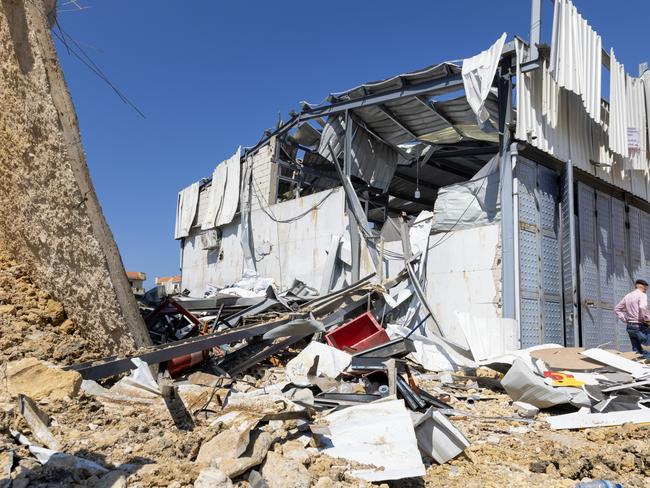
‘On the brink’: Israel crisis worsens
It came as Israel confirmed it had killed a top Hezbollah commander in its latest attacks on Lebanon.
Ibrahim Mohammed Kobeissi was, in Hezbollah’s words, “martyred on the road to Jerusalem” on Wednesday. That is the phrase the organisation typically uses to refer to militants killed in conflict with Israel.
Kobeissi was among six people who died in a strike on the southern suburbs of Beirut, according to the Israeli military, which described him as “the commander of the missile and rocket network of the Hezbollah terrorist organisation”. The strike also injured 15 people.
Hezbollah, a political party and paramilitary organisation, is considered a terrorist group by Australia, as well as other countries, including the United States and United Kingdom.
Israel said Kobeissi had been in command of several rocket units, including a precision-guided missile unit, and was hit alongside other commanders of Hezbollah’s rocket force.
“Kobeissi was an important source of knowledge in the field of missiles and had close ties with senior Hezbollah military leaders,” the Israeli Defence Forces said.
Spokesman Daniel Hagari told a media briefing that “at least two” other commanders from Kobeissi’s force were also “eliminated”.
Hezbollah and its arch-foe have been exchanging near-daily cross-border fire since the Gaza war erupted last October, in response to Hamas’s surprise attack on southern Israel.
The violence has spiralled dramatically in recent days, raising fears of an all-out war.
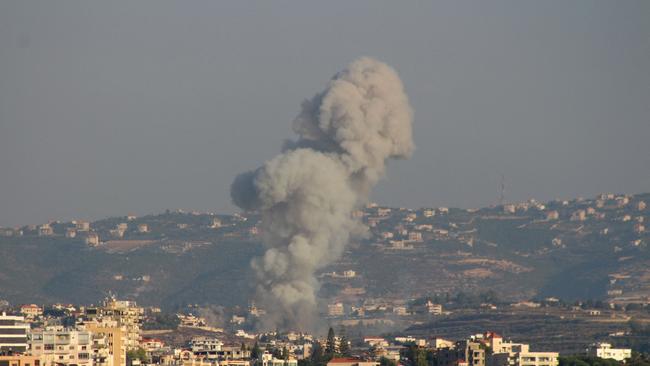
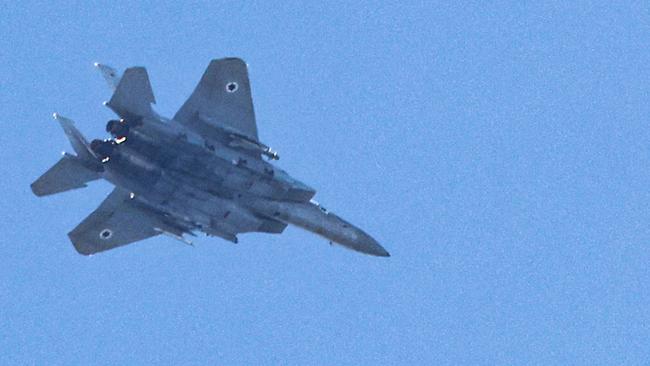
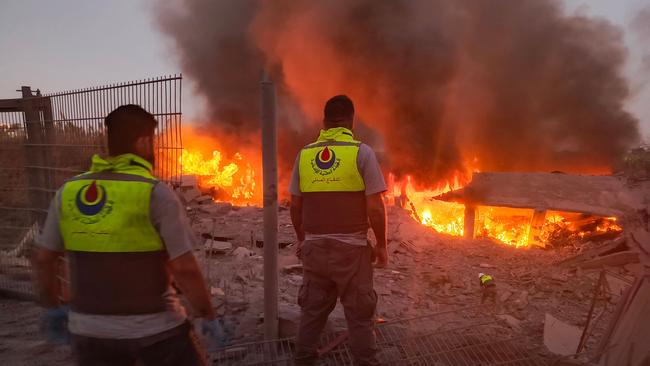
Region ‘on the brink’ of ‘full-scale war’
World leaders lined up at the United Nations on Tuesday to call on Israel to refrain from launching a full-scale war in Lebanon, with the organisation’s chief warning the situation was on the “brink”.
The UN General Assembly, the high point of the international diplomatic calendar, came after
authorities said the death toll from Israel’s strikes had risen to 558, 50 children among them.
“Full-scale war is not in anyone’s interest. Even though the situation has escalated, a diplomatic solution is still possible,” US President Joe Biden said in his farewell address to the global body before he steps aside in January. He’ll either be replaced by Vice President Kamala Harris, or by former president Donald Trump, depending on the outcome of November’s US presidential election.
“In fact, it remains the only path to lasting security to allow the residents from both countries to return to their homes on the border safely,” Mr Biden said.
His remarks drew disappointment from Lebanon’s foreign minister Abdullah Bou Habib, who said they were “not promising” and “would not solve the Lebanese problem”.
“We should all be alarmed by the escalation. Lebanon is on the brink,” UN Secretary-General Antonio Guterres said when he opened the gathering.
Israel’s ambassador to the UN, Danny Danon, said his country was “not eager” for a ground assault into Lebanon.
“We don’t want to send our boys to fight in a foreign country,” he said.
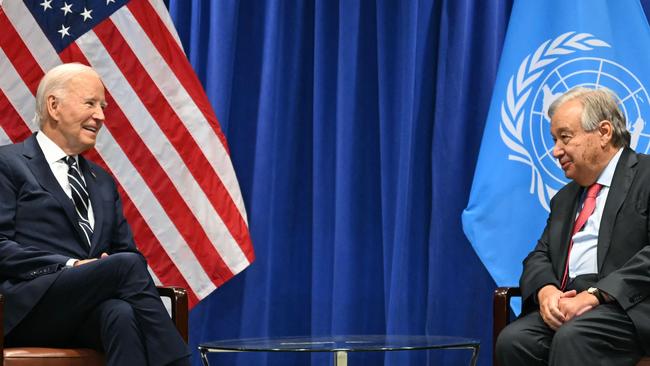
‘A non-stop nightmare’
It is unclear what progress can be made to defuse the situation in Lebanon, with efforts to broker a ceasefire in Gaza, which Israel has relentlessly pounded since last October, coming to nothing at the moment.
On Tuesday, Mr Biden pushed again for an elusive ceasefire between Israel and Hamas, telling the UN it was time to “end this war”.
Qatar, which has acted as a mediator, accused Israel of obstructing Gaza ceasefire talks, with Emir Sheikh Tamim bin Hamad Al-Thani saying “there is no Israeli partner for peace” under the government of Prime Minister Benjamin Netanyahu.
“We will continue our efforts of mediation to resolve the disputes through peaceful means,” he added, however.
Turkey’s controversial President, Recep Tayyip Erdogan, accused Israel of dragging the entire region “into war”.
“Not only children but also the UN system is dying in Gaza,” he said in a scathing speech.
Mr Guterres cautioned against “the possibility of transforming Lebanon (into) another Gaza”, calling the situation in the Palestinian territory a “non-stop nightmare”.
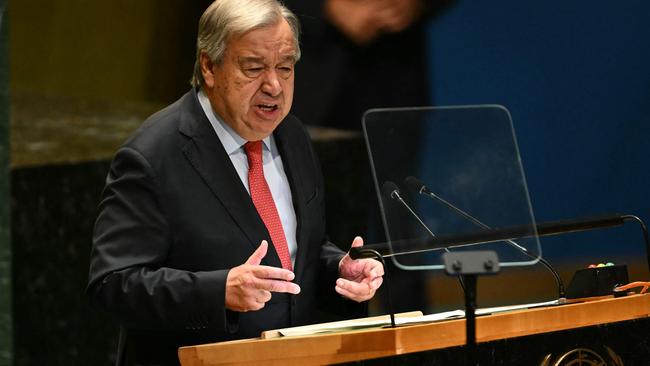
European Council President Charles Michel said that Israel had the right to exist and defend itself, but without inflicting “collective punishment” on civilians living in areas targeted by its military.
President Masoud Pezeshkian of Iran, which backs Hezbollah in Lebanon and Hamas in Gaza, condemned the UN’s “senseless and incomprehensible” inaction to resolve the situation.
‘Charade of hypocrisy’
British Foreign Minister David Lammy also sounded the alarm over the escalating violence in Lebanon.
“I am very worried about the risk of escalation, and this breaking into a wider regional conflict,” he told AFP as Britain announced it was deploying military units to Cyprus to assist with any evacuation of its citizens from Lebanon.
Responding to criticism of Israel, Mr Danon called the General Assembly debate an “annual charade of hypocrisy”.
Since last year’s annual gathering, when Sudan’s civil war and Russia’s Ukraine invasion dominated, the world has faced an explosion of crises.
The October 7 attack by Palestinian group Hamas on Israel resulted in the deaths of 1205 people and prompted a military response in Gaza that authorities say has killed at least 41,467 Palestinians, many of them civilians.
Violence has raged across multiple fronts in the Middle East since the crisis erupted, with the conflict exposing deep divisions at the UN.
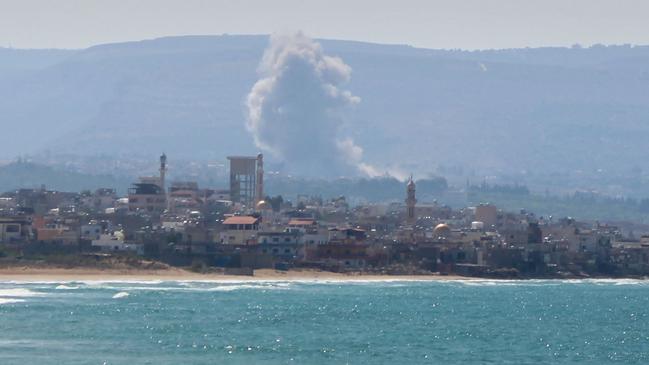
Hostages’ fate still unknown
Hamas took 251 hostages back into the Gaza Strip during their attack on southern Israel last October. A year later 64 people, including two children, are still being held in captivity. Israel believes they are alive.
Hamas considers the hostages to be key bargaining chips in its negotiations with Israel, as it seeks the release of Palestinian prisoners held in Israeli jails.
Of the 251 hostages seized by militants on October 7, 117 have been freed, most of them women, children and foreign workers.
Most were released during a week-long truce in late November in exchange for 240 Palestinian prisoners.
Nearly a year later, Israel still believes 64 hostages still held in Gaza are alive. The army has confirmed 70 others are dead, 33 of whose bodies are still in Gaza.
The military has repatriated the bodies of 37 hostages who either died in Gaza or were killed on October 7 and taken to the territory.
Of the 64 thought to be alive, 57 are Israelis, though some of them have more than one nationality. Another six are Thai nationals and one is Nepalese.
Fifty-two are men and 10 are women. Eleven are military personnel. Two are children.
The youngest hostage, Kfir, was just eight-and-a-half months old when he was kidnapped. The other child is his brother Ariel, who was only four years old when he was taken to Gaza.
Hamas has said the two children are dead, but Israel has not confirmed this.
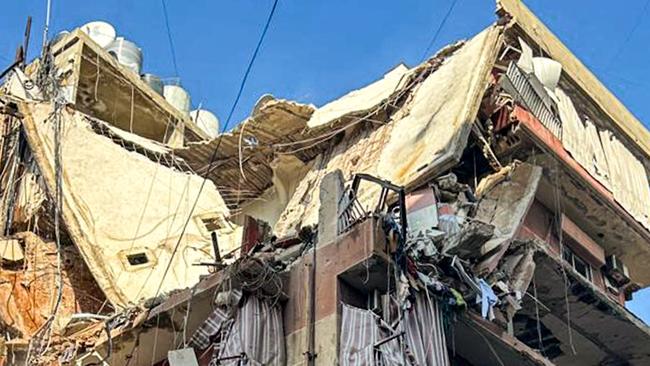
No proof of life
Since the truce between Israel and Hamas ended on December 1, only seven other hostages have been freed alive, all during Israeli military operations.
With no proof of life, uncertainty remains over whether the 64 are actually still alive.
The armed wing of Hamas said on August 12 that its fighters had shot and killed an Israeli hostage and injured two others. Hamas has announced on several occasions deaths of hostages that have not been confirmed by Israel, leaving families in agonising limbo.
At least 28 hostages are confirmed to have died in Gaza since the start of the war.
Three were killed in error by the Israeli army on December 15. They were Yotam Haim, 28, Samer El-Talalqa and Alon Shamriz, 26.
The Israeli army has accused Hamas of executing six others in August: Hersh Goldberg-Polin, Carmel Gat, Eden Yerushalmi, Alexander Lobonov, Almog Sarusi and Ori Danino. They were found dead by soldiers in a tunnel in Rafah, in southern Gaza.
Originally published as Israel bluntly shuts down allied calls for ceasefire as ‘hell breaks loose’ in Middle East


